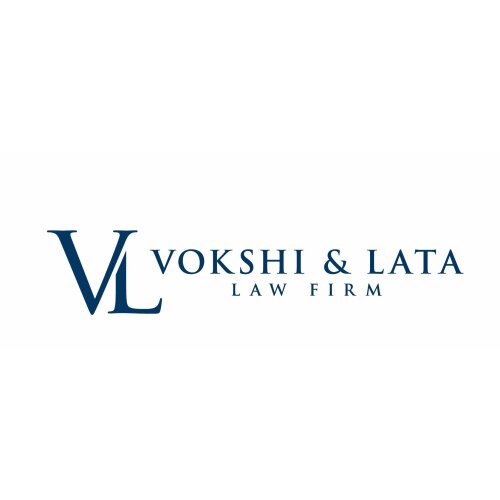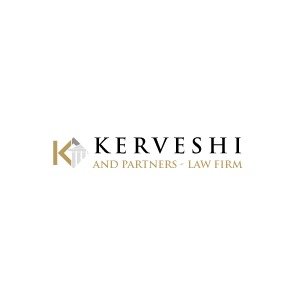Best Media, Technology and Telecoms Lawyers in Kosovo
Share your needs with us, get contacted by law firms.
Free. Takes 2 min.
Or refine your search by selecting a city:
List of the best lawyers in Kosovo
About Media, Technology and Telecoms Law in Kosovo
Media, Technology, and Telecommunications (MTT) law in Kosovo is a dynamic and evolving field. This area of law encompasses a range of legal issues related to broadcasting, digital communications, data protection, intellectual property, and electronic commerce. Kosovo has made significant strides in developing the infrastructure for telecommunications and internet technology, creating a robust landscape for businesses and individuals engaging in digital and media enterprises. The regulatory environment is designed to promote innovation while protecting consumer rights and maintaining competitive market conditions.
Why You May Need a Lawyer
As the media, technology, and telecoms industries continue to grow, there may be numerous scenarios where legal assistance is necessary. Here are some common situations where individuals or businesses may require legal help:
- Ensuring compliance with data protection regulations and privacy laws.
- Navigating the complex landscape of intellectual property rights including copyrights and trademarks.
- Drafting and negotiating contracts and licensing agreements within tech and media industries.
- Handling legal disputes related to digital communications or broadcasting.
- Addressing issues related to telecommunications services and infrastructure.
- Understanding and implementing e-commerce regulations and practices.
Local Laws Overview
Kosovo has specific local laws relevant to the media, technology, and telecom sectors:
- Telecommunications Law: Regulates the telecommunications sector, ensuring fair competition and consumer protection.
- Data Protection Law: Governs the collection, processing, and storage of personal data to protect individuals' privacy rights.
- Electronic Communications Law: Addresses various issues arising in electronic and digital communication, focusing on quality and accessibility.
- Intellectual Property Law: Protects creators' rights over their inventions, literary and artistic works, designs, and symbols.
- Cybersecurity Legislation: Aims to protect information systems infrastructure from cyber threats and ensure a secure digital environment.
Frequently Asked Questions
What are my rights regarding personal data in Kosovo?
Your rights regarding personal data are protected by the Kosovo Law on Protection of Personal Data, which ensures that your personal information is collected, processed, and stored legally and transparently.
How can I protect my intellectual property in Kosovo?
Intellectual property rights in Kosovo can be secured by registering trademarks, patents, and copyrights with the respective authorities. Legal expertise can help navigate the registration and enforcement processes.
What should I consider when drafting a tech contract?
Consider including clear terms on deliverables, payment, intellectual property ownership, confidentiality, and dispute resolution. Consulting a lawyer is essential to cover all important aspects.
How does Kosovo regulate e-commerce?
Kosovo's e-commerce regulations focus on consumer protection, contractual transparency, and data security. Businesses must comply with these regulations to operate legally online.
What are the penalties for data protection violations?
Penalties for non-compliance with data protection laws can range from fines to criminal charges, depending on the nature and severity of the violation.
How does Kosovo address cybercrime?
Cybercrime in Kosovo is addressed through specific legal provisions aimed at protecting information systems and prosecuting cyber offenders.
What is the process for telecom infrastructure development?
Telecom infrastructure development requires regulatory compliance with Kosovo's telecommunications authorities, including proper licensing and adherence to technical standards.
Can I broadcast content freely in Kosovo?
Broadcasting content requires adherence to licensing regulations and content guidelines established by the Independent Media Commission in Kosovo.
What are the restrictions on media content in Kosovo?
Restrictions generally focus on preventing hate speech, protecting minors, and adhering to content morality standards as per national guidelines.
How does Kosovo engage in international tech law agreements?
Kosovo aligns its tech laws with international standards through participation in global treaties and agreements, facilitating cross-border cooperation and harmonization.
Additional Resources
For more information and assistance, you may contact or visit the following organizations:
- Agency for Information Society (AIS): Responsible for IT policies and e-government development.
- Independent Media Commission (IMC): Regulates broadcasting and audiovisual media services.
- Ministry of Economy (Dept. of Telecommunications): Provides oversight for the telecommunications sector.
- Intellectual Property Office: Manages and processes IP registrations and disputes.
Next Steps
If you require legal assistance in Media, Technology, and Telecoms in Kosovo, consider the following steps:
- Consult a Lawyer: Seek expert legal advice tailored to your specific situation and needs.
- Gather Documentation: Prepare all relevant contracts, communications, and records for your lawyer's review.
- Research and Understand: Familiarize yourself with the regulations that pertain to your issue to provide a knowledgeable baseline for discussions.
- Engage with Relevant Authorities: Utilize local resources and authorities for guidance and further support.
Taking these steps will enhance your understanding and aid in navigating the complexities of Media, Technology, and Telecom laws effectively.
Lawzana helps you find the best lawyers and law firms in Kosovo through a curated and pre-screened list of qualified legal professionals. Our platform offers rankings and detailed profiles of attorneys and law firms, allowing you to compare based on practice areas, including Media, Technology and Telecoms, experience, and client feedback.
Each profile includes a description of the firm's areas of practice, client reviews, team members and partners, year of establishment, spoken languages, office locations, contact information, social media presence, and any published articles or resources. Most firms on our platform speak English and are experienced in both local and international legal matters.
Get a quote from top-rated law firms in Kosovo — quickly, securely, and without unnecessary hassle.
Disclaimer:
The information provided on this page is for general informational purposes only and does not constitute legal advice. While we strive to ensure the accuracy and relevance of the content, legal information may change over time, and interpretations of the law can vary. You should always consult with a qualified legal professional for advice specific to your situation.
We disclaim all liability for actions taken or not taken based on the content of this page. If you believe any information is incorrect or outdated, please contact us, and we will review and update it where appropriate.
Browse media, technology and telecoms law firms by service in Kosovo
Kosovo Attorneys in related practice areas.
Browse media, technology and telecoms law firms by city in Kosovo
Refine your search by selecting a city.










